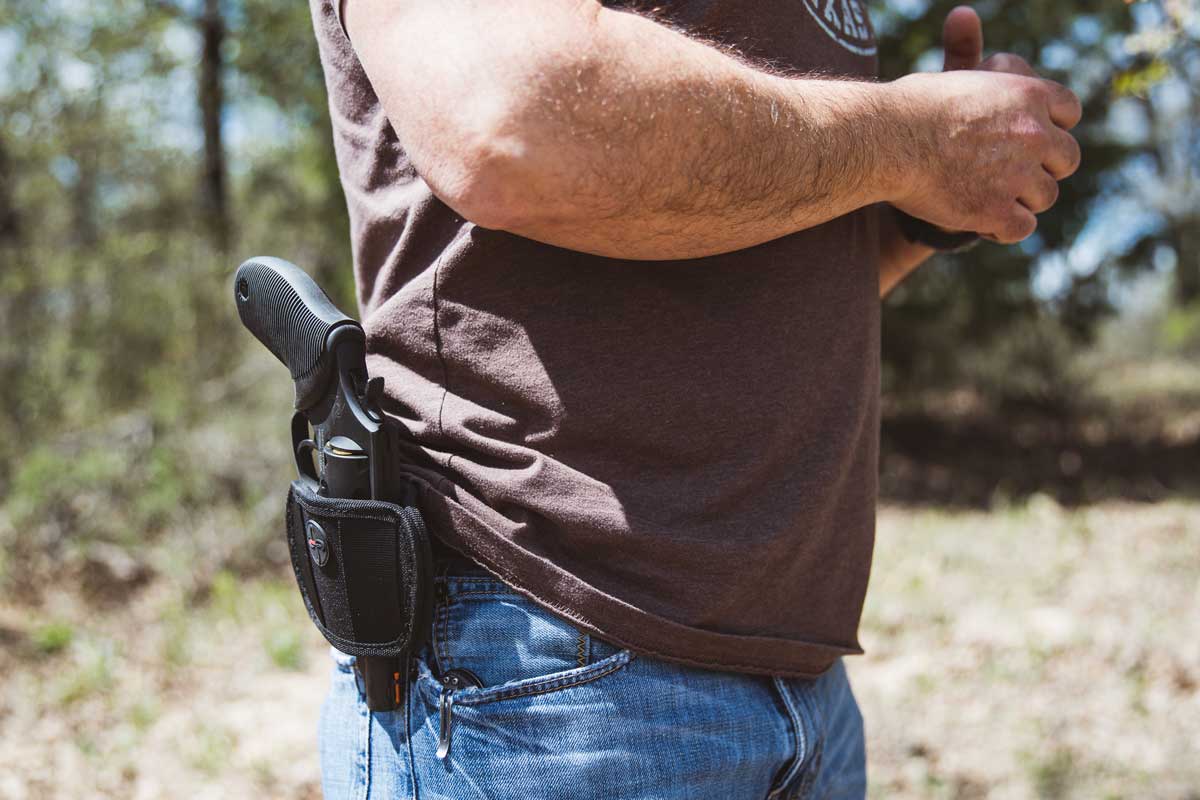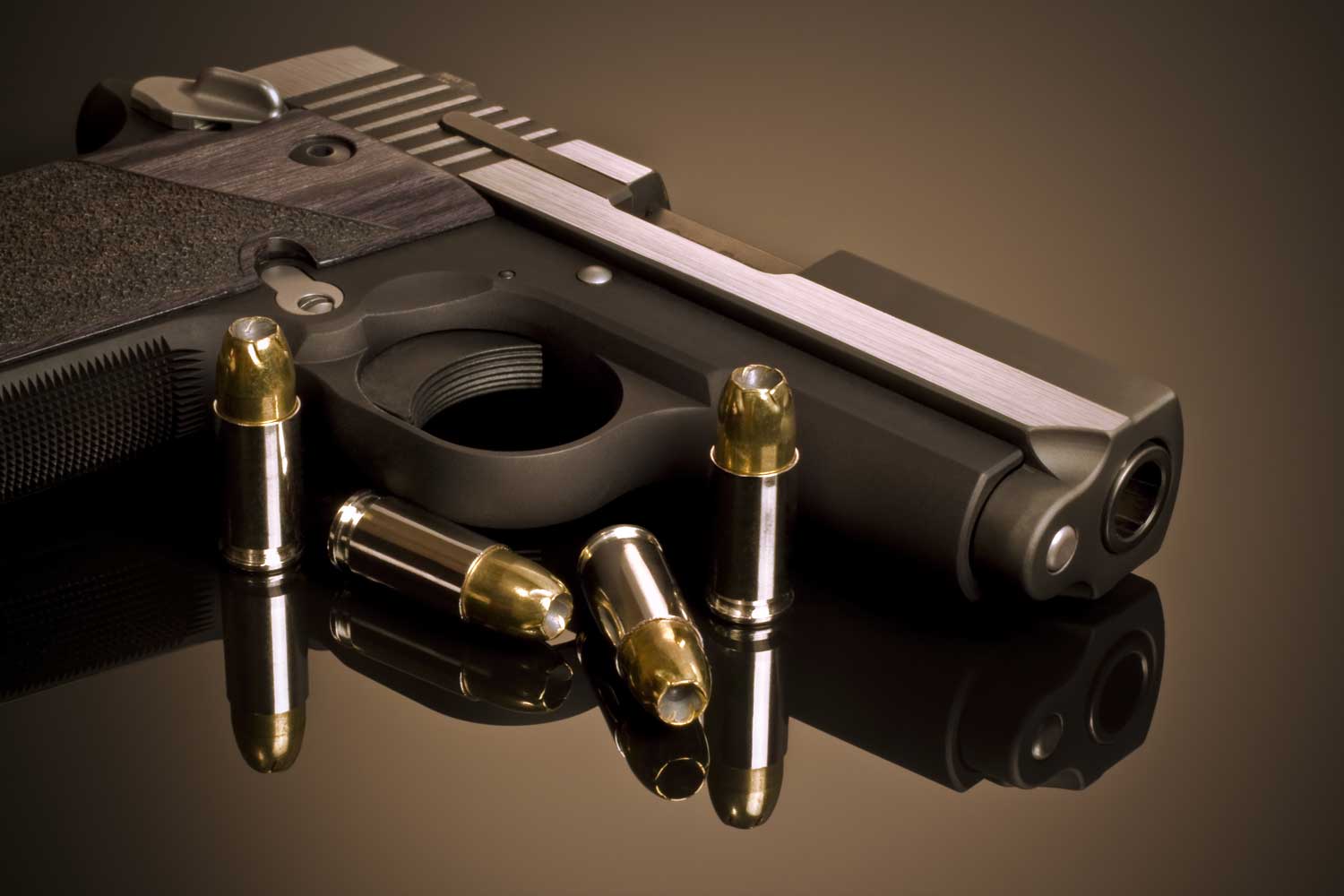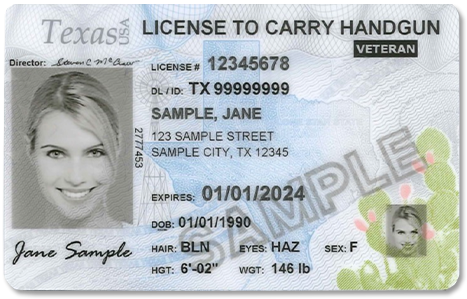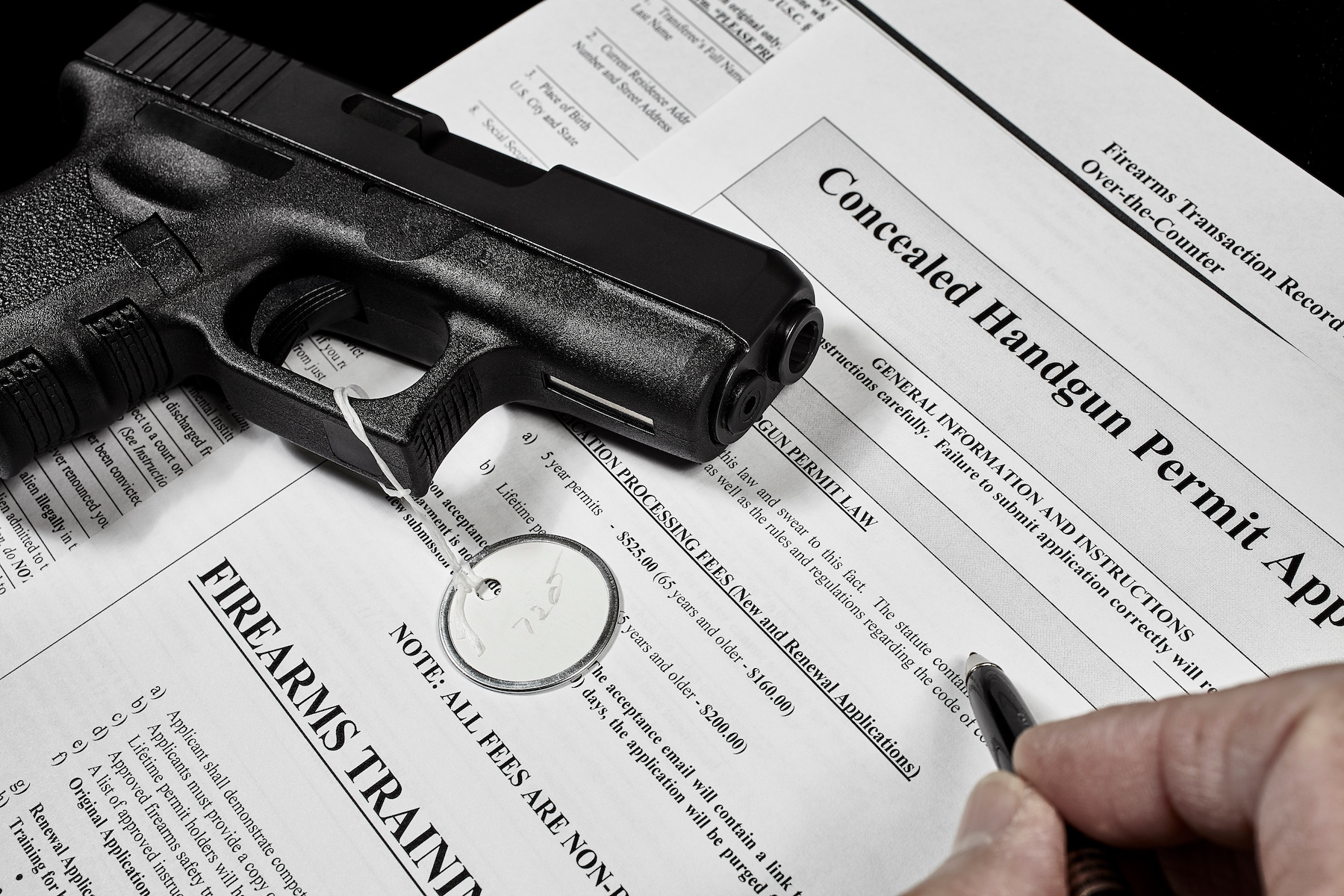Texas and its gun laws have had a variety of changes in recent years. There’s a lot of confusion as to what’s considered open carry now, who can qualify toward a gun license, and much more. We want to cover all the bases to ensure you know everything there is to know about open carry in Texas. Let’s dive into our comprehensive guide on what you should know before you get your LTC.
What is Open Carry in Texas?
First, what is open carry considered in the great state of Texas?
The term refers to the practice of carrying firearms openly and visibly in public. Like many states, Texas allows for you to open carry or carry a concealed weapon. It looks like fewer states are putting restrictions on open carry as the years continue, we do want to note.
In the lone star state, it’s legal to carry a handgun without a license, however there can be many draw backs and legal gotcha's if you choose to do so. We always recommend this rule. If you can afford to get your license to carry, get it now. Here are just a few reasons why it's beneficial to get your license to carry whether you plan to carry openly or concealed.
- You can legally carry way more places including into most small businesses.
- You can instantly prove to law enforcement you are not a criminal carrying a firearm with malicious intent.
- You will know you are carrying legally if you were approved for an LTC. Many people carrying without a license don't even realize they are breaking the law as they are not eligible to carry without a license. Even though you don't technically have to have a license, the law is still very strict on who can carry their firearm legally without a license. You can face up to 5 years in prison for carrying without a license just for having as little as a misdemeanor on your record. Don't risk it. Just get the license.
- You will be knowledgeable regarding all gun laws after taking the LTC class. Knowledge is power. Would you let your kids jump in the car at 16 without knowing what a stop sign was, or what the speed limit means? Same goes with firearms, claiming ignorance of the laws will not get you out of a felony gun violation. Getting your license to carry will ensure you know all the laws to keep you legal and out of jail.
There are so many more reasons why you should get your license. If you are interested in learning more of those reason, go to our homepage and scroll down to our "12 reasons why" section. Or go ahead and sign up for the LTC class below if you are ready.
What Counts as “Traveling”?
The law doesn’t specify what actually counts as traveling. It’s oftentimes left up to the court to decide, depending on the case. In any particular case, the circumstances may lead to a misdemeanor or a third-degree felony charge because of the violation of legal gun restrictions.
How is it Legal to Open Carry in Texas?
In Texas, it’s legal to openly carry a handgun, as long as you have it holstered on your hip or in a shoulder holster.
Unlike in the past, before 2017, there’s no need to conceal a gun anymore.
In order to openly and safely carry a gun in Texas, however, you should get what used to be called your concealed-handgun license. Now, the official term is License to Carry, or LTC, for short. There are also other requirements to getting your LTC.
What are the Open Carry Texas Requirements?
Per the gun law codes at present, you must:
- Be at least 18 years old to obtain your License to Carry.
- Complete classroom training (online) and pass a shooting test with a local, certified instructor.
- Be able to pass a background check, which helps to rule out any applicants with certain types of criminal history.
When Can You Open Carry?
A person can’t just carry a gun absolutely anywhere they want -- yes, even in Texas, and even if they have a License to Carry.
Areas considered gun-free zones, like schools (with an LTC you can now carry in some school zones and most college campuses, see course for details), courtrooms, and other legal public settings, polling places, and airports.
Businesses can also opt to ban guns, though they do have to post signs if they do. It’s to a business’ discretion whether they want to allow guns or not, both in an open carry and concealed handgun medium. Most businesses have chosen to restrict people from carrying on their property without a License to Carry, thats one of the many benefits to getting your license.
It’s a third-degree felony if you carry any type of gun into certain Texas locations. To summarize, restricted locations include:
- Court buildings, legal offices, and other relevant businesses
- At racetracks and sporting events
- Hospitals and medical offices
- Many bars, restaurants, and other businesses in the food industry
- Polling places, such as buildings that handle early voting or election voting
- Any business specifying with signs, in both English and Spanish, they’re a gun-free zone
Exceptions to the Restrictions
License holders can carry handguns to or from residential units including apartments, condos, and houses as long as they own, rent, or are visiting guests at the residence.
Likewise, on-duty officers and certain volunteers who provide emergency services are exceptions to these gun restrictions.
*What About Handguns on College Campuses?
While handguns on any campus aren’t commonplace in many other states, Texas has a specific law allowing those with an LTC to carry concealed handguns on most post-secondary school campuses.
Campuses include technical institutes, universities, and public colleges, though individual institutions may establish reasonable safety rules for their concealed handgun carry rules. They may even specify certain buildings are off-limits, but they may not imply a license holder can’t bring their legal weapon on campus.
Just because concealed handguns are legal, though, does not mean open carry is in place at all. In fact, in Texas, it’s a Class A misdemeanor to carry a handgun visibly on any university or college campus. Likewise, it’s the same degree of misdemeanor if you carry a handgun where the institution specifically prohibits it.
Fun Fact: Did You Know?
About 4% of the Texas population currently possess a License to Carry, and we see the number go up every year. While such a percentage might sound small, it rounds out to about 1.2 million Texans who can operate and own firearms.
What About Rifles and Shotguns?
Texas has no laws which restrict carrying rifles or shotguns, other than the general gun prohibitions we already mentioned. Recent felons and areas like schools are off-limits when it comes to guns of any caliber. The state puts the most importance on requiring a license to carry a handgun, whether openly or concealed, if it’s away from your own property.
More About Gun Laws in Texas
Now that we know about some of the gun laws in Texas, let’s recap. Open carry is legal as long as the handgun is in a belt or shoulder holster, as long as all other requirements were met. And of course, we’ve touched on the fact you have to be 21 years old to buy a gun or have an LTC.
However, Texas is still a “Shall Issue” state, which means any person at least 18 years old can own a firearm. Gun laws in our state don’t regulate the possession of firearms, so technically anyone, of any age, can possess a firearm as long as they’re not a felon. This is why kids are legally able to practice shooting and hunting whenever their parents deem appropriate.
To wrap up, we found out a lot more about gun laws in Texas, with a special focus on Texas open carry laws. We hope we were able to answer some valuable questions you might have about getting your LTC, who qualifies and anything else you may have needed to know about the topic.
If you still have questions, though, the guide’s not over yet. Take a look at our FAQs below to be fully informed.
Interested in Obtaining Your LTC?
It’s easier than you might think! Any person can take our Department of Public Safety approved 4-hour course to get started. Once you complete the course, just take your new LTC-101 up to a local certified instructor, complete your live-fire demonstration, then apply to get your license. It’s so simple!
FAQs
We understand you may still carry questions about open carry Texas laws. Fortunately, we have the answers! We’ve compiled a quick list of the most common questions we’re asked on the subject.
Is it legal to open carry in Texas without a license?
Yes. But its a really good idea to obtain a License to Carry before you decide to open carry in Texas.
Where can I open carry in Texas?
You may open carry in Texas in public areas of city facilities, such as recreation centers or libraries, the Texas State Capitol, walking down the street outside (even in public), and any businesses with no visible signage that prohibit licensed handguns. However, the only way to legally open carry is to ensure the gun is holstered in your belt or shoulder holster at all times.
Can I open carry a loaded firearm in Texas?
Open carry Texas laws don’t have a specific distinction between whether a firearm must be unloaded or loaded. Technically, you can legally open carry a loaded firearm in Texas.
Can I carry a loaded gun in my car in Texas without a CHL?
If you own the car or it’s under your control, you can carry a loaded handgun in a motor vehicle, or even a boat, as Texas doesn’t require a valid handgun license in that medium. Likewise, there are no gun laws in Texas on carrying long guns in motor vehicles, so you may possess a long gun or handgun in a vehicle without a CHL.
What’s the difference between a CHL and an LTC?
A CHL, or concealed handgun license, is the old term used to describe the legal license to carry guns. The new official term is simply LTC, or License to Carry, simplifying the process. The new LTC combined the need to have either the license to open carry or a concealed handgun license into one process. Now, with an LTC and thanks to the latest open carry Texas laws, you can open carry or conceal your weapon on your body legally.
Last updated July 2023








